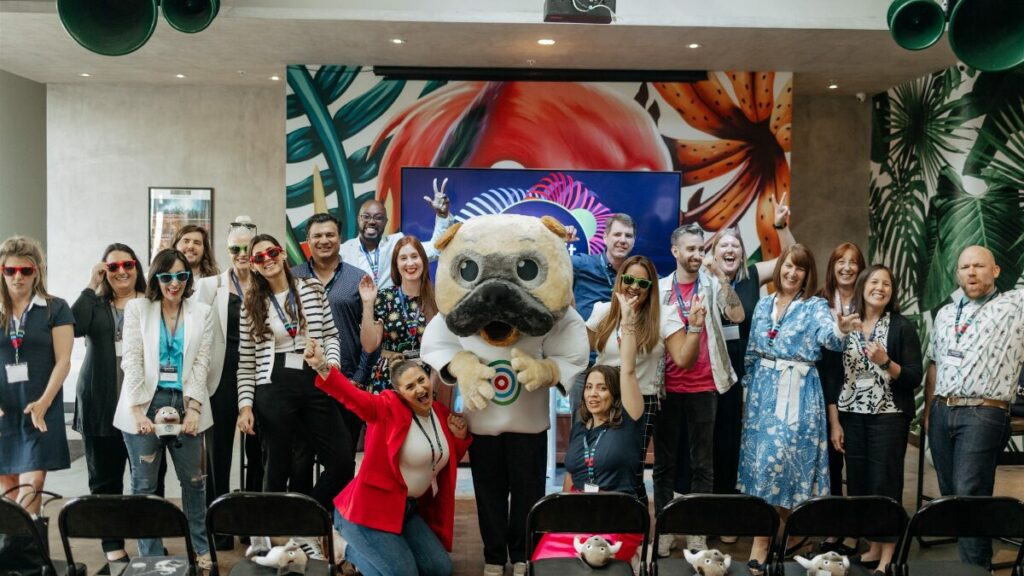5 top digital marketing tactics for SMEs

There’s never enough time in the day for marketers – even more so, for marketers of startups and small businesses. So what are the top tasks that you really need to get right, straight off the bat?
This week, we welcomed Marketing Week Live back to London. As we mentioned in our previous blog, this year the show was arranged into ‘challenge areas’, rather than channels – looking at real risks and opportunities that face marketers in their day to day jobs. We’ve boiled down four of the top concerns that we feel small enterprises will definitely face when ramping up their digital presence, and most importantly to help kick up the bottom line.
1 – Common Sense Email Marketing
It shouldn’t be a surprise that this is at the top of our list. Check out our most recent infographics if you’re still not sold on the importance of email for building businesses and relations.
Many brands and organisations are still not making the most of this particular channel, given that its very inception was for personal one-to-one communications. Email has to be a human channel – receiving email from an ‘info@marketing.com-style’ alias just reminds your opt-ins that they’re on a mailing list – not the most personal of approaches, especially if your email list is made up of ‘soft opt-ins’.
A recent study by FourthSource saw that out of 500 surveyed brands, over 60% still sent marketing emails to non-engaged recipients. Apart from a waste of resources, this is just bad practice, and shows a lack of attentiveness to what your audience is actually reacting to. Similarly, every one on your list is different, and will react to different content and products in their own way. Look to track not just opens, but also what people are clicking on.
Takeaways: Initially look to build and augment your email lists through well placed web-forms – check out our strategy guides and blogs for more information.
Segment your email lists by engagement – know who’s hungry for your content, and use that to infer your audience’s needs. Check out our blog on mapping and creating re-engagement email automation programs on our platform.
2 – New School SEO
The old school SEO of link building isn’t totally out, however, with Google’s new Panda Update currently rolling out, the emphasis is on content that ensures your users and customers return and stay onsite. In short, your site needs to be one of utility and have a solid user interface.
Cold call emails aren’t going to help drive that traffic, or build real relationships with other organisations – think more in more human terms and more creatively about placement and distribution.
Takeaways: Consider your technology and solution partner base, as well as your current clients – they’re your best advocates, and a solid place to get started building great links.
Further Reading:
- 13 Point SEO Checklist for Websites (Business2Community)
- Google’s Panda Algorithm Squeezes Mediocre Content and… Press Releases? (March)
3 – Remarketing Engines
In recent years, we’ve seen the rise of sites such as Business2Community and Social Media Today, which resyndicate great content, and engines such as Outbrain which republish links and content of your choosing dynamically to one-time site visitors, across the web on various sites. Remarketing is a great way to one-time site visitors back to pull prospects further towards your brand.
With Website Custom Audiences becoming more and more straightforward to set up, even entry-level marketers can set up great retargeting campaigns on social networks where you know your audience will always be active.
Takeaways: Think about your site’s users in segments – what parts of your site, or product pages are going to be relevant for what audience? Consider what ‘secondary supporting’ content you already have that would be relevant to their interests, and use those as a basis for your campaign.
If you’ve already segmented your email list, as above, consider building a remarketing segment based on those preferences.
4 – Be Social
Social Media is simply another forum to help humanize your brand, and can only really be effective when you consider it as a complimentary channel for putting a real face to your business. As it’s often a time intensive exercise for smaller brands to get started on, it’s often underutilized.
The best social happens offline. Track and share your company events that happen in the physical world – whether it’s the human drama of a product development meeting or a new hire. Social media is the electronic dinner table, and your potential customers are your evening guests. Only your brand can really know what the balance is between cold corporatism and unprofessionalism – but look to your best sales people to help define the voice that you want to speak to your customers with. Similar to your tone of voice in your email marketing, you want to use your presence across social to engender trust in your company, but also be approachable – someone that your customers would want to sit at the table with.
Takeaways: Before you dip your toe into social, agree who’s going to be responsible for what channel. Know that every channel has its own particular function, and the communities that you build on them will have their own nuance – Facebook communities tend to be more informal and B2C-orientated, than LinkedIn, and the content and thoughts you share there should reflect that. Lastly, it’s important to be consistent: visibility on Facebook is a question of remaining relevant to your audience, and Twitter’s ephemerality means that your posts could be lost within 20 minutes. Develop a cadence for your news cycle and stick to it.
Further Reading:
- Convince & Convert (the whole blog is a treasure trove!)
- Connected (excellent primer for developing digital communities)
5 – Make PPC Pay for you
While organic often results in the best and deepest relationship between unique users and a brand, paid listings still rank higher in Google Search, but you know what appears above that? Organic SEO. It builds up over time, but sometimes a short-tail campaign is often the best way to develop a core audience and drive conversions time. Adwords are obviously one of the best options out there, but other solutions do exist.
Takeaway: Consider keywords that compliment your earlier efforts in email marketing, social and remarketing – what have your audience base been engaging with? Generic short keyword phrases don’t necessarily drive clicks that convert and eat up budgets quickly. Again, think in more human terms – longer search phrases and negative adwords target those potentials who are more ready to convert. Check out the video below from Space 48, one of our design partners on the cardinal sins of adwords, and what you need to do to boost conversions.
The Wrap Up
Each of these tactics are inexorably linked, and shouldn’t be worked on in isolation. As we say time and time again: Start Small, Think Big, Scale Quickly. We don’t need long words when talking to our customers. More than anything, we should continually consider how we can bring the human touch to brands, through simple common sense.




